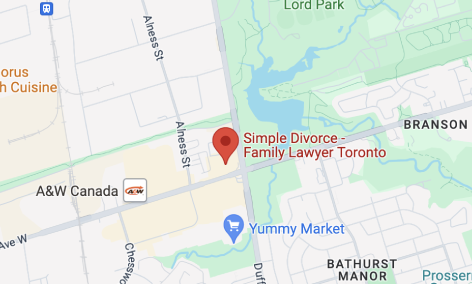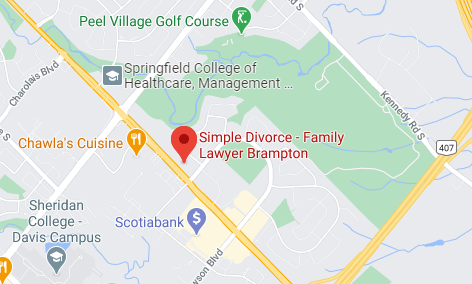
Ontario Family Law
In majority of Family Law disputes, it is always preferable that the outstanding issues be dealt with by negotiations which would then result in an Agreement being entered into by the parties. However, at times, this is not possible and in order for a person’s interests and rights to be properly protected, the commencement of a Court application is necessary. Listed below is a brief overview of the Ontario family law litigation process.
In Ontario, there are three different levels of Court that deal with Ontario Family Law matters which are:
- Family Court of the Superior Court of Justice – These courts can deal with all issues that relate to an Ontario Family Law dispute including but not limited to divorce, property issues, custody and support.
- Superior Court of Justice – These courts deal with divorce, property issues, custody and support.
- Ontario Court of Justice – These Courts can only deal with issues that relate to custody, access and support.
Regardless of which Court is best to address the unresolved issues you have, the procedures of the Court are set out by the Family Law Rules. The Family Law Rules were devised in order to promote early resolution of Ontario family law cases, thereby reducing the number of Court attendances and avoiding the necessity of trial.
Ontario family law court proceedings are started by the issuance of an Application. All claims are specifically set out in the Application, along with a brief summary of the facts that support the claims sought. Once the Application has been prepared, it is taken to the appropriate Court to be issued, following which it is served upon the Responding party. There are usually corresponding documents that must also be prepared along with the initiating process of the Application such as, but not limited to a sworn Financial Statement.
Within 30 days of being served with an Application, the Respondent has the opportunity of filing an Answer. The Answer sets out what claims the Responding party may agree with, disagree with, as well as allowing the Responding party to make Ontario family law claims of their own.
Once the Answer is served and filed, the Applicant has the right to then serve and file a Reply to the Answer within 10 days of it being served on them.
If your matter is proceeding at the Ontario Court of Justice level, a First Appearance Date is scheduled at the time the Application is issued. The First Appearance is held before the clerk of the Court and is an informal appearance at which time it is determined if all requisite documents have been filed. If all is in order, a Case Conference is scheduled.
A Case Conference is scheduled usually after both sides have served and filed their pleadings. This attendance is before a Judge and is designed to ensure proper disclosure has been exchanged and, if not, an Order for specific disclosure is made. The Judge can also give procedural direction as well as to grant leave for Motions to be brought.
Following a Case Conference a Settlement Conference will then be scheduled, followed by a Trial Management Conference. During the Ontario family law litigation process, the purposes of these conferences are similar to a Case Conference -that is to encourage the parties to attempt to settle the matter. Direction is given by the Judge as well as temporary orders being made at these stages if need be. These Orders usually relate to setting timeframes for disclosure and narrowing the issues that will actually proceed to trial.
After a Case Conference has been held, and at times before so long as the permission of the Court is obtained, a party can bring a Motion whereby they are seeking an order for substantive relief on a temporary basis. Examples of this would be a party seeking temporary custody of a child(ren), support or an order for the sale of jointly owned property. The Order obtained will stay in effect until the otherwise varied by a subsequent Order or until the case has been tried or settled.
If your case has not settled, following attendance at the Trial Management Conference, a trial date is set. If a trial proceeds, it is at this time that witnesses are called to testify and documentary evidence is presented, thereby giving each party an opportunity to present their evidence to support their position.
For more information about the Ontario family law litigation process, or about obtaining a divorce in Ontario, please contact our Toronto divorce lawyer.
NOTICE AND DISCLAIMER: The material posted on this website is for informational purposes only and should not be relied upon as legal advice. If you are in need of legal advice relating to your particular situation it is highly recommended to consult with a lawyer.
Helpful Resources:
Divorce and Separation
Family Justice Services
Child Custody and Access
Spousal Support
Child Support
Division or Equalization of Family Property
Treatment of a Matrimonial Home
Enforcement of Support Payments
Child Protection
Child Adoption



